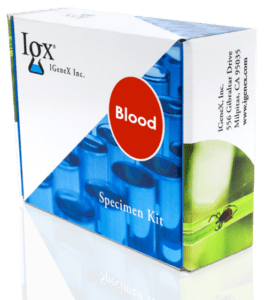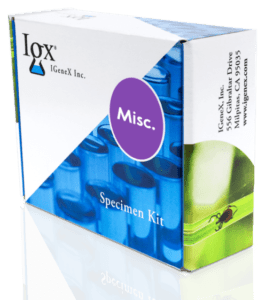Rocky Mountain spotted fever (RMSF) is the deadliest tick-borne disease in the world, according to the Centers for Disease Control and Prevention (CDC). A bacterium called Rickettsia rickettsii causes this disease. Anyone bitten by an infected tick can get RMSF, and it can cause death even in young or previously healthy people.
In fact, without prompt treatment, the illness can cause serious damage to internal organs, such as your kidneys and heart. Before the use of antibiotics, RMSF in certain locations had a mortality rate of 70 percent. RMSF is now easier to treat and has a mortality rate of 0.3 percent following treatment. Although RMSF cases have been reported throughout most of the contiguous United States, the CDC reported in June 2018, five states (Arkansas, Missouri, North Carolina, Oklahoma, and Tennessee) account for over 60% of RMSF cases. RMSF has become increasingly common in some regions of Arizona.
Early signs and symptoms of RMSF include a severe headache and high fever. A few days later, a rash usually appears on the wrists and ankles.
Causes of Rocky Mountain Spotted Fever

RMSF is caused by infection with the organism Rickettsia rickettsii. Ticks carrying R. rickettsii are the most common source of infection. If an infected tick attaches itself to your skin and feeds on your blood for six to 10 hours, you may pick up the infection, according to the Mayo Clinic.
The American dog tick (Dermacentor variabilis), the Rocky Mountain wood tick (Dermacentor andersoni), and brown dog tick (Rhipicephalus sanguineus) have all been shown to spread RMSF in the U.S. On the West Coast, the lone star tick (Amblyomma americanum) has also been found to carry the bacteria. To identify ticks and tick bites, click here.
People who have high exposure to dogs have a higher chance of contracting RMSF, according to the CDC, because dog ticks so often carry R. rickettsia.
The disease cannot be spread from person to person.
Rocky Mountain Spotted Fever Symptoms
Although many people become ill within the first week of infection, signs, and symptoms may not appear for up to 14 days. Initial signs and symptoms of RMSF often are nonspecific and can mimic those of other illnesses, including flu.
Initial symptoms can include:
- high fever
- chills
- severe headache
- muscle aches
- nausea and vomiting
- confusion or other neurological changes
Rash is Distinctive
The red, non-itchy rash associated with RMSF typically appears three to five days after the initial signs and symptoms begin. The rash usually makes its first appearance on your wrists and ankles and can spread in both directions — down to the palms of your hands and the soles of your feet and up your arms and legs to your torso.
Some people infected with RMSF don’t ever develop a rash, which makes diagnosis much more difficult.
When to See a Doctor
See your doctor if you develop a rash or become sick after a tick bite. RMSF and other infectious diseases carried by ticks can progress rapidly and may be life-threatening. If available, take the tick along with you to your doctor’s office for laboratory identification. Be sure to remove the tick properly.
Additional Tests Available
The diagnosis of Rickettsiosis is challenging to make clinically for patients because the symptoms are non-specific. The diagnosis should be considered in patients bitten by a tick and are experiencing any of the symptoms typical of Rickettsia infections, even mild ones.
IGeneX offers the following tests to help physicians in the accurate detection of Rickettsia.
FOR HEALTHCARE PROFESSIONALS: Click here for more information on the type of diagnostic tests for Rickettsia infections, including Rocky Mountain Spotted Fever. In addition, physicians may want to consider having blood tested for other possible causes of their patient’s symptoms, including other tick-borne infections, such as Lyme disease.
Sources
- https://www.mayoclinic.org/diseases-conditions/rocky-mountain-spotted-fever/symptoms-causes/syc-20361032
- https://www.cdc.gov/rmsf/symptoms/index.html
- https://www.medicalnewstoday.com/articles/317198
- https://kidshealth.org/en/parents/rocky.html








